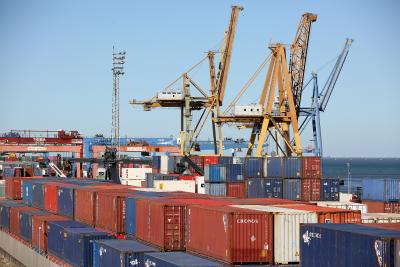New Delhi, Nov 27 : India Inc expressed surprise over the narrowing of the GDP contraction for July-September to 7.5 per cent and said that the numbers are better than anticipation.
They, however, said that the government must look at further supporting demand in the country to give a major economic boost.
Sangita Reddy, President, FICCI said: “The GDP figure showing a decline of 7.5 per cent in the second quarter has come in as a pleasant surprise. This is much better than what was anticipated by most analysts and clearly reflects that the Indian economy is on a sharp recovery mode.”
She said that the positive, although marginal, growth noted in the manufacturing sector in the second quarter is truly encouraging.
“Many of the high frequency indicators were showing swift correction moving into the green zone and we have also seen an improvement in the incoming corporate results for the second quarter. All these trends are quite reassuring and speak of the resilience of the Indian industry and economy,” Reddy said.
The FICCI President, however, said that going ahead, the government should keep a close watch on the demand side.
“While the festive season will continue till December and the earlier demand-oriented measures announced by the government will take effect, we feel it will be important to lend further support to consumption activity. The government can look at extending the consumption voucher idea to all rather than just government employees,” she said.
Sanjay Aggarwal, President, PHD Chamber of Commerce and Industry said that reforms undertaken the by the government since March 2020 have given the direction to the economy to come back on track.
“Going ahead, the Government’s focus on demand rejuvenating measures introduced under Aatmanirbhar Bharat 3.0 will have a multiplier effect on the economic growth trajectory through enhanced demand, job creation, increased private investments, escalated exports and growth of sectors that have strong backward and forward linkages in the coming quarters,” Aggarwal said.
Demand creation along with increased spending on infrastructure will have multiplier effects on the economic growth trajectory by boosting private investments, creating new employment opportunities in the country, generating demand for commodities such as steel, cement and power, he said.
ASSOCHAM Secretary General Deepak Sood was of the view that the arrest of the slide from a steep contraction of 23.9 per cent in the first quarter of 2020-21 to 7.5 per cent drop in Q2, “clearly shows a sharper recovery in India’s economy”.
He said that going forward, the second half of the current financial year should give us surprises on the positive side. Sood add that said several key high frequency indicators point towards further improvement, with the rural economy leading the rebound even as the urban consumption is returning to shape.
A statement by Chandrajit Banerjee, DG, CII said: “We are certain this trend would continue and the figures for the third quarter would be reflective of that. Though private consumption seemed to be weak in Q2, all anecdotal evidence point towards a stronger consumption scenario in the next quarter.”
Banerjee, however, said that an increase in government spending would help this momentum for a more robust growth in the coming months.
Dharmakirti Joshi, Chief Economist, CRISIL said that the second-quarter GDP data has lent a positive bias to our full-year call of 9 per cent contraction.
“However, there are some signs of flattening of economic activity in the third quarter. Hence, that and further spread of Covid-19 will remain the key monitorables,” he said.
In a report, Barclays said: “Today’s modest upward surprise reinforces our view that a robust rural sector and fiscal transfers have supported the Indian economy.”
While manufacturing production is showing a strong recovery for now, output is close to near-term highs, so Barclays expects the strength here to likely moderate in the coming months, as inventory replenishment is likely over, it said.
Rumki Majumdar, Economist, Deloitte India was of the view that the contraction in the first two quarters of this fiscal year is no surprise.
“Since the quarterly data of GDP is released with a lag of two months, we should look at these numbers in the rear-view mirror keeping in perspective that recent high-frequency data possibly suggest a quicker rebound ahead. The possibility of a release of several highly effective vaccines soon gives us hope that there is an end date to the pandemic, even if it may not be immediate,” Majumdar said.
Disclaimer: This story is auto-generated from IANS service.

